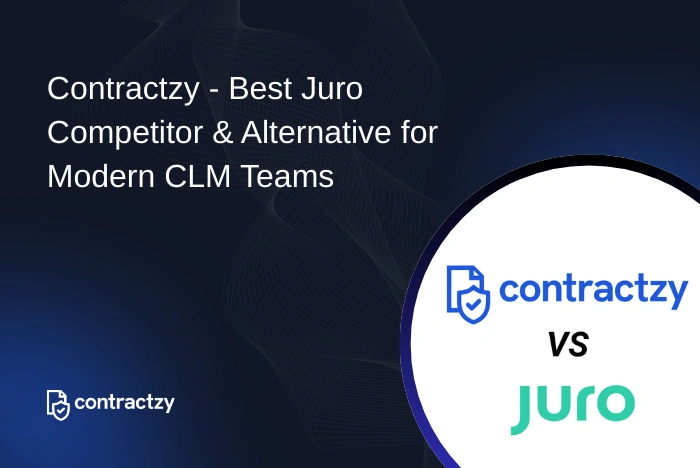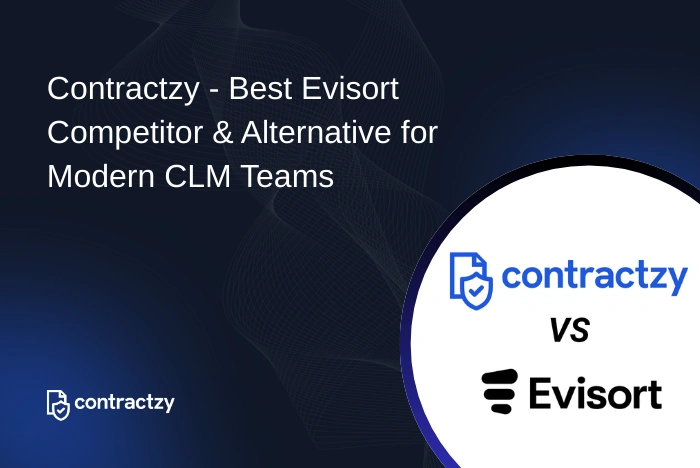
How to Effectively Review Different Types of Contracts: A Comprehensive Guide
Imagine you have just received a new contract to review. It is an important one maybe for a partnership, a major client, or a new hire in your company. The terms seem straightforward at first glance, a few pages of text, a couple of signatures required, and then you’re done. But as you read on, you start noticing a few things that don’t quite add up. Some terms seem overly vague, others are oddly one-sided, and there’s a clause buried in the middle that could potentially cost you much more than you bargained for. You realize that signing this contract without fully understanding what’s in it could lead to unexpected problems down the road—perhaps a missed payment, an unintended commitment, or even legal complications. The contract you thought was simple has suddenly turned into a minefield, and understanding it requires more care than you initially thought.
This situation is more common than you might think. Contracts are everywhere, and we often enter into them without fully comprehending their implications. Whether it’s a personal agreement, a business deal, or a large-scale partnership, contracts lay the foundation for how relationships are structured, disputes are handled, and obligations are fulfilled. Yet, they can be riddled with legal jargon, hidden clauses, and complex terms that are easy to overlook but can carry significant weight.
In this guide, we will explore the essential steps for reviewing different types of contracts. From dissecting legal language to identifying potential red flags, you’ll learn how to confidently understand contract terms and ensure that you’re entering agreements that protect your interests and avoid unpleasant surprises.
Employment Contracts
Employment contracts establish the terms between employers and employees and lay out expectations on both sides. While they may seem straightforward, these contracts are often a source of confusion or legal disputes if not reviewed carefully.
What to Look For:
- Job Title, Duties, and Expectations: The contract should explicitly describe the job title, role, and key responsibilities. Ambiguity here can lead to misunderstandings about the nature of the work or possible disputes over job duties later.
- Compensation and Benefits: This section should outline base salary, bonuses, commissions (if applicable), and other benefits such as health insurance, retirement plans, stock options, and paid time off. It’s important to ensure that the terms match any verbal agreements made during the hiring process.
- Work Schedule and Location: Particularly important for remote or flexible work arrangements, ensuring that working hours and the location (e.g., remote work, office-based, travel requirements) are clearly stated.
- Non-compete and Confidentiality Clauses: Non-compete clauses prevent employees from working for competitors after leaving a company. These should be reasonable in terms of duration, geographic scope, and the type of work restricted. Confidentiality clauses protect trade secrets and proprietary information, and they should clearly define what information is considered confidential and for how long the obligation lasts.
- Termination Clause: This defines the conditions under which either party can terminate the relationship, whether for cause or without cause. The agreement should specify any severance pay, notice periods, and grounds for immediate dismissal.
What to Avoid:
- Vague Language: Terms like "reasonable efforts" or "acceptable performance" should be avoided unless clearly defined. Unclear job descriptions or responsibilities can cause disputes in the future.
- Unreasonable Non-compete Clauses: Non-compete clauses should be narrowly tailored to protect legitimate business interests. A non-compete that is too broad or long may not hold up in court.
- Excessive Termination Restrictions: Be wary of contracts that place unreasonable limitations on the termination process, such as requiring long notice periods or giving the employer excessive discretion over firing decisions.
Service Contracts
Service contracts govern the relationship between service providers and clients, and they play a critical role in ensuring that both parties’ expectations are met and that the terms of service are clear.
What to Look For:
- Scope of Work and Deliverables: This is a critical part of the contract. Ensure that the tasks, services, or deliverables are outlined in detail, including project milestones, deadlines, and expected outcomes. For example, if you are hiring a software development firm, the specific features, timeline, and functionality should be included in the contract.
- Payment Terms: Clarify the total cost of the services, as well as the payment schedule. For projects with several phases, specify how payments will be made upon reaching certain milestones. Be sure to include any payment penalties for late payments.
- Liability and Indemnification: This section explains the responsibilities of each party in case of errors, damages, or failure to meet obligations. Ensure that liability is fairly allocated and that indemnity provisions are balanced—meaning neither party should be unfairly held responsible for situations outside their control.
- Termination and Exit Strategy: It’s important to have clear guidelines on how the contract can be terminated by either party, whether for non-performance, mutual agreement, or other reasons. Be sure to clarify the exit strategy and any penalties or fees associated with early termination.
What to Avoid:
- Unclear Deliverables or Undefined Milestones: Lack of specificity on deliverables or a poorly structured payment schedule can cause misunderstandings about the scope of work or the progress of the project.
- Overly Restrictive Terms: Be cautious of contracts that impose restrictive clauses that limit the provider’s flexibility to complete tasks or make reasonable adjustments to timelines.
Sales Contracts
Sales contracts outline the terms and conditions of a sale, whether of goods, services, or both. They ensure that both the buyer and seller are on the same page and protect each party from future disputes.
What to Look For:
- Product or Service Description: The contract should clearly describe what is being sold, including any relevant specifications, features, quantities, and quality expectations. For physical goods, this might include serial numbers, models, or condition. For services, details of the service level should be mentioned.
- Pricing and Payment Terms: Be sure to check that the price is clearly defined, including any applicable taxes, delivery fees, and terms for payment. The agreement should specify whether payments are to be made upfront, in instalments, or upon completion of the sale.
- Delivery Terms: It’s critical that the delivery terms are clear, including when and where the goods or services will be delivered, as well as who is responsible for shipping or transport costs.
- Risk and Ownership Transfer: Clearly define when ownership and risk are transferred. In most cases, this occurs once the goods are delivered or the service is completed, but ensure that the contract explicitly states this.
- Dispute Resolution: This clause outlines how disputes will be handled. Options may include mediation, arbitration, or litigation, and it’s important to choose the right method based on the situation.
What to Avoid:
- Vague Pricing: Ambiguities in pricing can lead to unexpected charges or disputes. Always ensure that the pricing structure is crystal clear, including any hidden costs.
- Unclear Delivery Terms: Vague delivery terms can lead to delays and confusion about where and when the goods or services should be delivered.
Real Estate Contracts
Real estate transactions, whether buying, selling, or leasing, require particularly careful review due to their complexity and the significant financial commitments involved.
What to Look For:
- Property Description: The property should be clearly described, including details like the address, boundaries, square footage, and any fixtures or equipment included in the sale. Make sure that the property description matches public records.
- Sale Price and Payment Terms: The sale price should be clearly outlined, along with the payment method and schedule. Payment terms should specify whether there is a deposit required and the timelines for the remainder of the payments.
- Contingencies: These are conditions that must be met before the contract can proceed. Common contingencies include obtaining financing, a satisfactory inspection report, or approval from a governing body.
- Closing Date: The contract should specify the date on which the transaction will close, when ownership will transfer, and when the buyer must take possession of the property.
What to Avoid:
- Missing Details or Inaccurate Descriptions: Inaccurate or incomplete property descriptions can lead to disputes or delays in the transaction. Always double-check against public records.
- Unclear Contingencies: Be sure that any contingencies are clearly defined and achievable. Avoid vague terms such as "reasonable approval" or "satisfactory inspection."
Construction Contracts
Construction contracts are essential for ensuring that all parties involved in a building project understand their obligations, timelines, and costs.
What to Look For:
- Detailed Scope of Work: The scope of work should include not only what will be built but also how it will be built, including materials, design specifications, and construction processes.
- Timeline and Milestones: Projects often take months or years to complete, so ensure that the contract specifies timelines and project milestones. This will help avoid unnecessary delays and budget overruns.
- Cost Estimates and Payment Terms: Costs should be broken down by phases (e.g., site preparation, materials, labor) and include payment schedules for each stage.
- Insurance and Bonds: Verify that the contractor has the appropriate insurance and bonds to cover potential risks, such as property damage or work-related injuries.
- Dispute Resolution: The contract should address how conflicts will be resolved. Common methods in construction contracts include mediation, arbitration, or litigation.
What to Avoid:
- Vague Specifications: Avoid contracts that are unclear about the materials or standards to be used. Ambiguities in construction details can lead to subpar results.
- Unrealistic Deadlines: Ensure that deadlines are achievable. Overly optimistic timelines can pressure workers and lead to mistakes or shortcuts.
Partnership and Joint Venture Agreements
When businesses collaborate on a project, a partnership or joint venture agreement outlines the terms of that partnership, including roles, responsibilities, and profit-sharing.
What to Look For:
- Roles and Contributions: Ensure that the contract clearly states the roles and contributions of each party. This includes not only financial contributions but also intellectual property, expertise, and labor.
- Profit and Loss Sharing: The agreement should outline how profits (or losses) will be shared among the partners, including how distributions will be made.
- Decision-Making and Management Structure: The agreement should address how decisions will be made and who has authority in day-to-day operations.
- Exit Strategy: This is perhaps the most critical part of a joint venture agreement. Define the terms under which the partnership can be dissolved and the process for selling off interests.
What to Avoid:
- Unclear Contributions or Expectations: Be cautious of vague language surrounding the contributions of each party. Ambiguities here can lead to dissatisfaction and disputes.
- Unequal Profit Distribution: Profit and loss distribution should be equitable and based on each party’s contributions. Avoid disproportionate shares that might lead to resentment later.
Conclusion
Contract review is a crucial step in safeguarding your interests, whether you are entering into an employment agreement, buying property, or managing a complex business arrangement. By understanding the key elements of different contract types and knowing what to look for and avoid, you can understand contracts more effectively and mitigate potential risks.
Take your time, be diligent, and consider seeking professional assistance when necessary to ensure that all contract terms are clear, fair, and legally sound.








